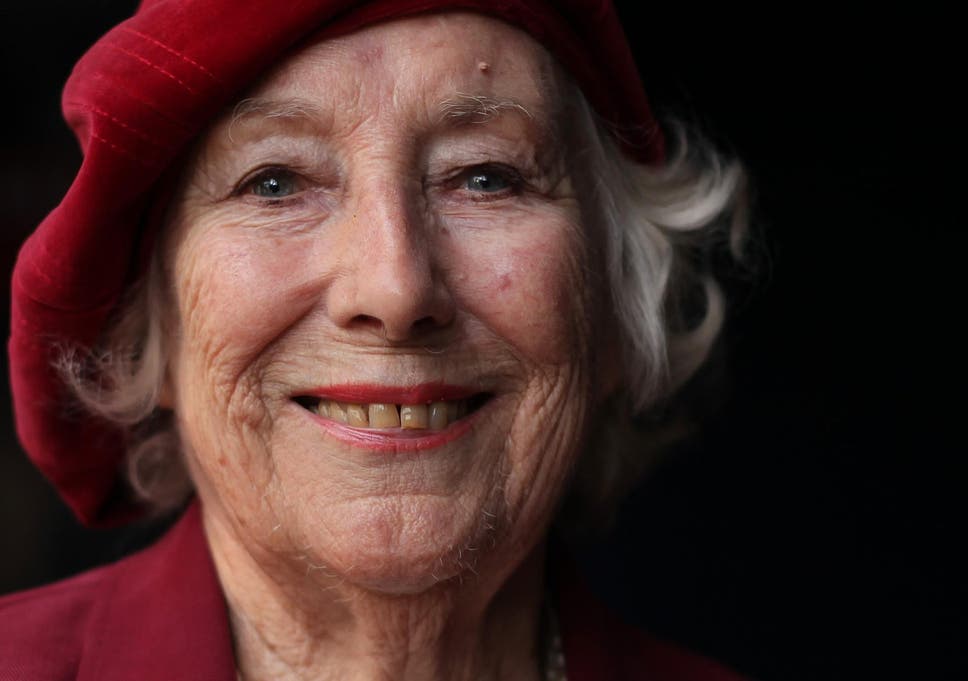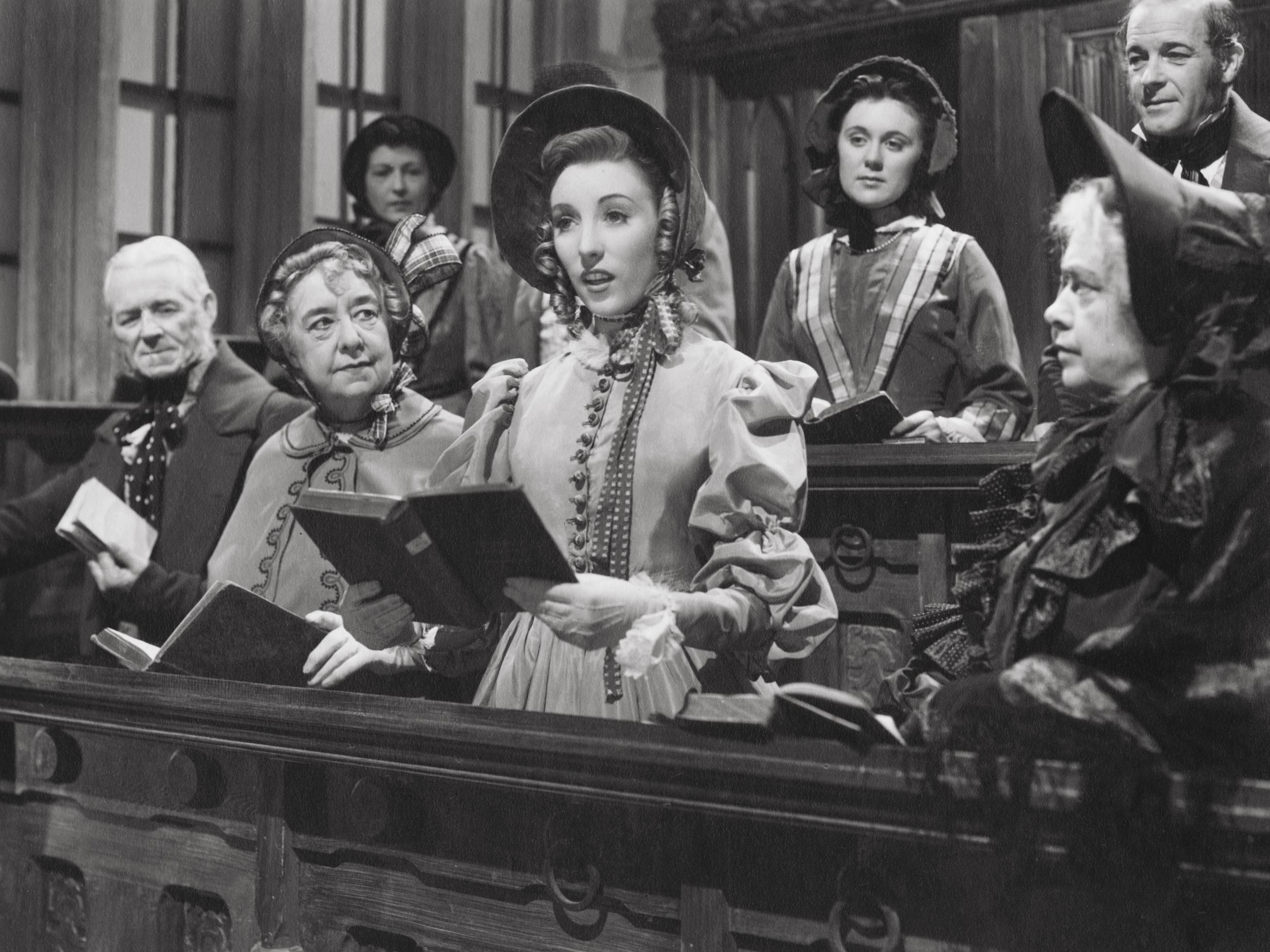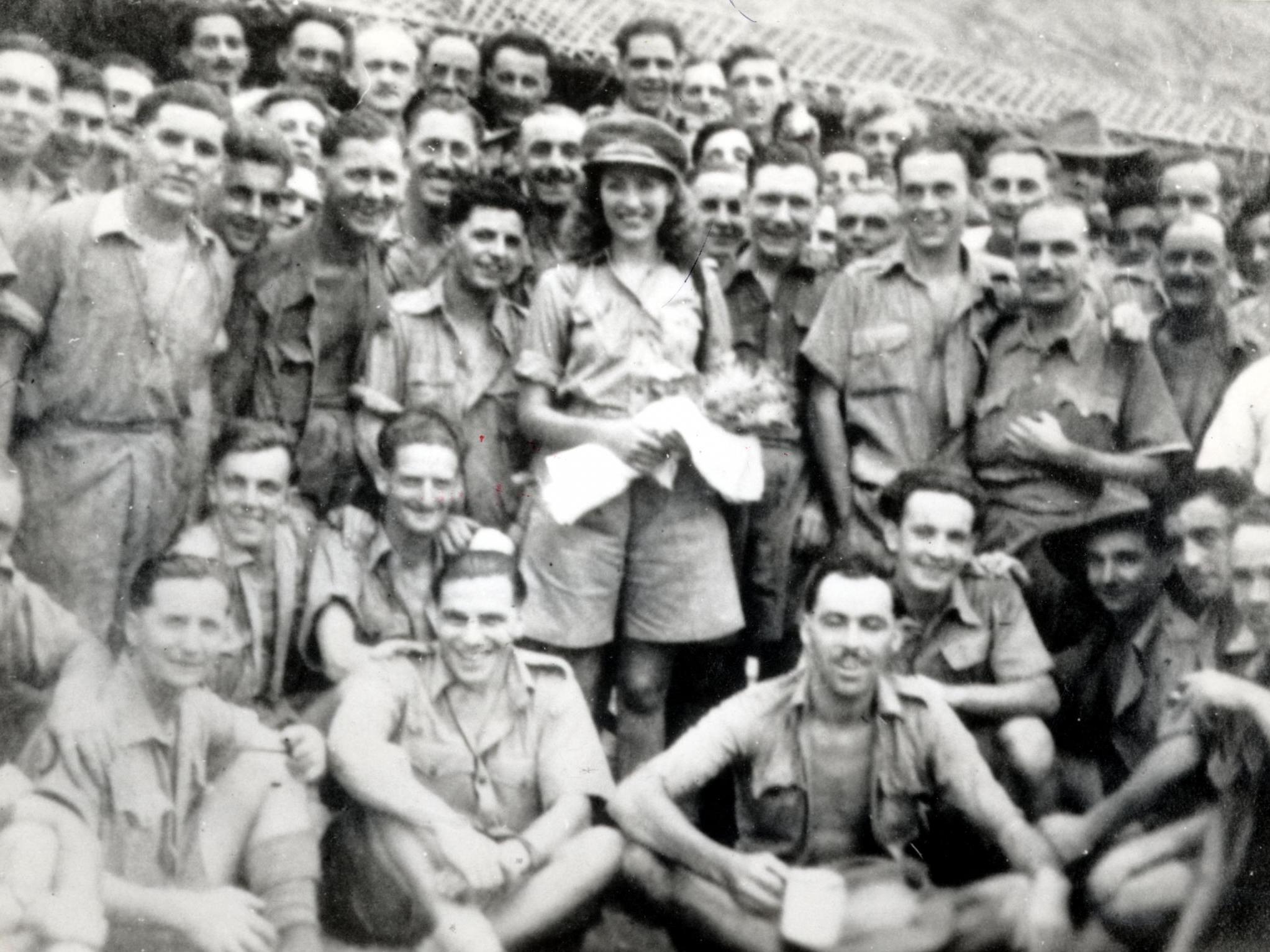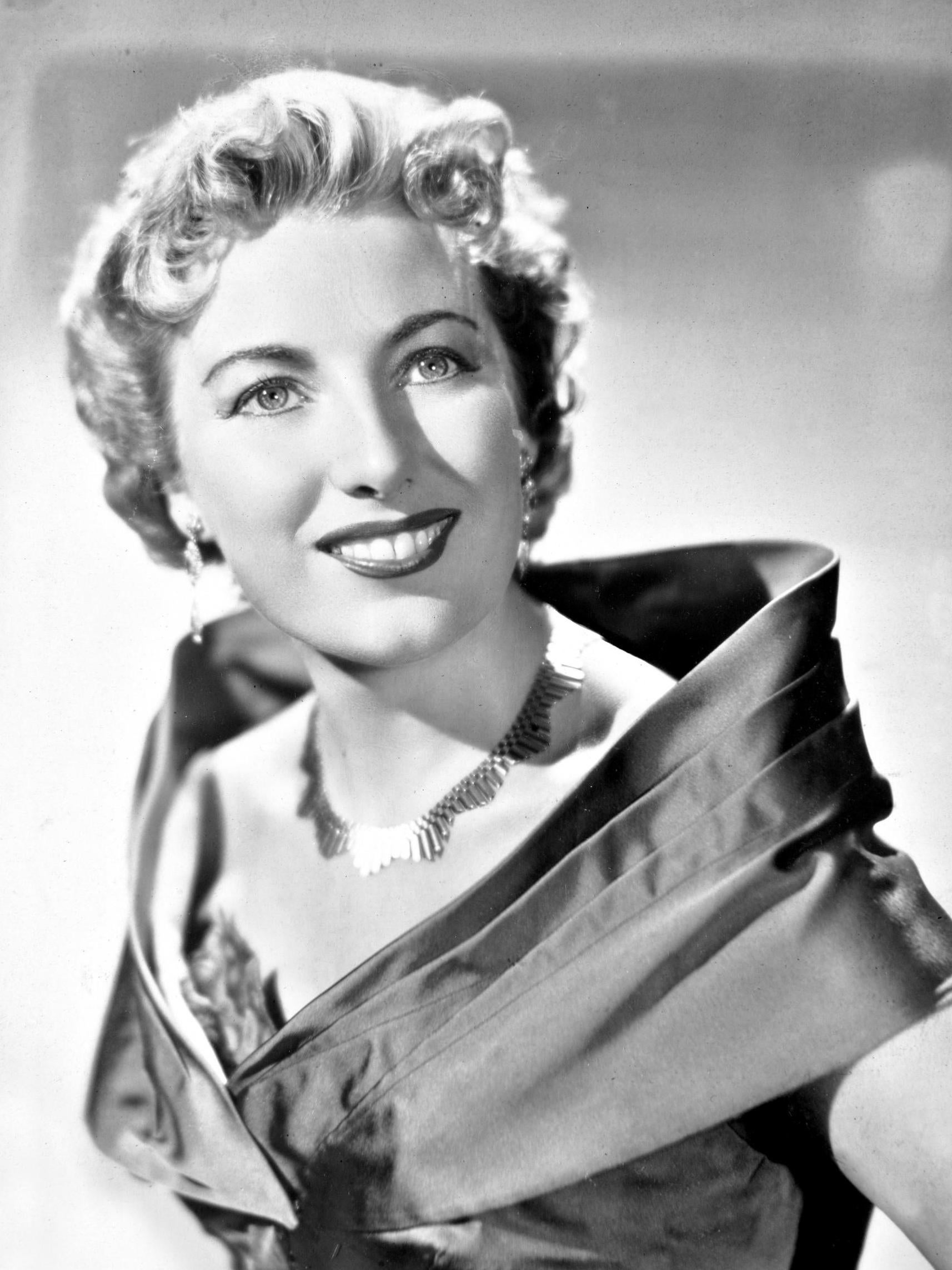Vera Lynn, singer, born 20 March 1917, died 18 June 2020
Dame Vera Lynn death: Singer and Second World War ‘Forces’ Sweetheart’ dies aged 103
Lynn died surrounded by her close family
Ellie Harrison
1 hour ago
Dame Vera Lynn, the British singer whose songs were hugely popular during the Second World War, has died aged 103.
A statement from her family said: "The family are deeply saddened to announce the passing of one of Britain's best-loved entertainers at the age of 103.
"Dame Vera Lynn, who lived in Ditchling, East Sussex, passed away earlier today, 18 June 2020, surrounded by her close family."
Lynn was widely known as "the Forces' Sweetheart" as her performances inspired and gave hope to troops in Egypt, India, and Burma during the war.
The songs most associated with her include "We'll Meet Again" and "The White Cliffs of Dover".
She was born in 1917 in the London suburb of East Ham, the daughter of a plumber. After discovering her talent for singing early on, she was performing in local clubs by the age of seven. At 11, she left school to pursue a career as a dancer and singer.
Lynn celebrated her 103rd birthday in March, marking the occasion by releasing a new video for "We’ll Meet Again", including a voiceover aimed at cheering up the British public during the coronavirus pandemic.
“We are facing a very challenging time at the moment, and I know many people are worried about the future,” she said.
“I’m greatly encouraged that despite these struggles, we have seen people joining together.
“Music is so good for the soul, and during these hard times we must all help each other to find moments of joy.”
Dame Vera Lynn: War-time singer who spoke to the heart of a nation
Her signature tune, ‘We’ll Meet Again’, struck a deep chord from the home front to the front line
Dame Vera Lynn death: Singer and Second World War ‘Forces’ Sweetheart’ dies aged 103
Lynn died surrounded by her close family
Ellie Harrison
1 hour ago
Dame Vera Lynn, the British singer whose songs were hugely popular during the Second World War, has died aged 103.
A statement from her family said: "The family are deeply saddened to announce the passing of one of Britain's best-loved entertainers at the age of 103.
"Dame Vera Lynn, who lived in Ditchling, East Sussex, passed away earlier today, 18 June 2020, surrounded by her close family."
Lynn was widely known as "the Forces' Sweetheart" as her performances inspired and gave hope to troops in Egypt, India, and Burma during the war.
The songs most associated with her include "We'll Meet Again" and "The White Cliffs of Dover".
She was born in 1917 in the London suburb of East Ham, the daughter of a plumber. After discovering her talent for singing early on, she was performing in local clubs by the age of seven. At 11, she left school to pursue a career as a dancer and singer.
Lynn celebrated her 103rd birthday in March, marking the occasion by releasing a new video for "We’ll Meet Again", including a voiceover aimed at cheering up the British public during the coronavirus pandemic.
“We are facing a very challenging time at the moment, and I know many people are worried about the future,” she said.
“I’m greatly encouraged that despite these struggles, we have seen people joining together.
“Music is so good for the soul, and during these hard times we must all help each other to find moments of joy.”
Dame Vera Lynn: War-time singer who spoke to the heart of a nation
Her signature tune, ‘We’ll Meet Again’, struck a deep chord from the home front to the front line
Robin Cross THE INDEPENDENT

The WWII icon recently spoke of the bravery and sacrifice of those that lived through the Second World War ( Getty )
For those who lived through the Second World War few names are more evocative of the period than that of Dame Vera Lynn, and no song more calculated to stir the embers of nostalgia than her signature tune, “We’ll Meet Again”. Its promise of reunion “some sunny day” spoke directly to families separated by war, and its appeal to “keep smiling through” struck a deep chord from the home front to the front line.
Just this year the Queen referenced the song in an extraordinary address to the nation at the beginning of the coronavirus lockdown. In an effort to calm the country and reassure families that had been separated by the unprecedented restrictions, the monarch insisted that Britons “will meet again”.
A photograph taken in the summer of 1942 captures Lynn’s unforced and unassuming personality, one of the keys to her stamina in a show business career which spanned many decades. Out in Pimlico and doing her bit on a recruiting drive for London’s Fire Guard, Vera shares a mug of tea with the troops outside a mobile canteen, Tea Car No 110. Smartly dressed and surrounded by servicemen grinning bashfully in the presence of a star, she retains the gawky charm of the girl next door, just the sort of date the soldiers’ mothers wanted their sons to bring home. The pneumatic American movie star Betty Grable was the “Forces’ Pin-Up”, but the homely Lynn – “Our Vera” – was the “Forces’ Sweetheart”.
Vera Margaret Welch was brought up in a working-class home in the flat, straight streets of London’s East Ham. The family had modest show business connections – her Uncle George did a George Robey impersonation in working men’s clubs and her father was master of ceremonies at the Saturday-night dances held in the East Ham Working Men’s Club.
The clubs were Vera’s training ground. She made her professional debut at the age of seven as a “distinctive child vocalist”, singing such 24-carat tearjerkers as “What is a Mammy, Daddy?” at venues like the Mildmay Club in Newington Green, where the rows of seats had ledges on their backs for beer glasses and the chairman and club committee sat in front of the stage at a long table.

Starring in ‘One Exciting Night’, 1944 (Rex)
The clubs of north and east London were a tough school for the tall, thin girl with a penetrating low-pitched voice: 7/6d for three songs and 1/6d for an encore. After seven years of singing in the clubs, and a lengthy stint with a juvenile troupe rejoicing in the name of Madame Harris’ Kracker Kabaret Kids, young Vera was an accomplished professional and a familiar figure in the Denmark Street offices of music publishers. Vera Welch had also become Vera Lynn, adopting her grandmother’s more comfortable sounding maiden name for professional purposes.
Her first break came when she was spotted singing at the Poplar Baths by Howard Baker, London’s self-styled “gig king”, whose agency ran up to 20 bands bearing his name. As a “croonette” with Baker, Lynn mastered microphone technique and developed her distinctive plangent style. Most of her songs needed to be transposed down into unusual keys, automatically giving them a “different” sound which was reinforced by great clarity of phrasing and the transparently sincere delivery of simple, sentimental lyrics. As Lynn later observed, “I sang as if I believed in them because I did believe them.”
From 1935 Lynn began a purposeful ascent of the show business ladder, although there were some early setbacks: a disastrous engagement with Billy Cotton, a bandleader notoriously hostile to female vocalists, which ended after 10 days; and rejection by Henry Hall after an audition for the BBC Dance Orchestra. The up-and-coming Joe Loss was more sympathetic and Vera made her radio debut with him before moving over to sing with Charlie Kunz’ Casini Club orchestra. Her first solo record, released in February 1936, had “Up the Wooden Steps to Bedfordshire” on the A-side, backed by “That’s What Loneliness Means to Me”.
After 18 months with Kunz, Lynn joined the suave Bert Ambrose, whose orchestra was the leading dance band of the day. Ambrose was originally doubtful about her suitability. His new vocalist had no pretensions to chic and he already had a popular female singer in the shape of the American Evelyn Hall, with whom Lynn was later to conduct a long, smouldering feud. However, Ambrose’s manager Joe Brannelly, another American, convinced Ambrose of Lynn’s talent and she made her debut with his band in the Radio Luxembourg studio at Bush House in a programme sponsored by Lifebuoy soap – hygiene by radio was all the rage in the 1930s. At first she was not a full-time member of the Ambrose set-up, joining him for radio broadcasts and recording sessions. Later Vera sang with the Ambrose Octet, which toured the variety theatres at the top of the bill.
Now earning £40 a week, Lynn was able to afford previously undreamt-of luxuries, including a nine-room house in Barking purchased for £1,175. She also paid £200 for a green Austin 10 in which she drove home every night straight after the show, politely declining all invitations to clubs and parties.
War had already broken out when she recorded “We’ll Meet Again” in November 1939. It was the first of three wartime songs which she made her own. “The White Cliffs of Dover”, improbably invested with bluebirds, struck a straightforwardly patriotic note while the third, “Yours”, was a romantic song of yearning and separation.
Lynn left Ambrose to go solo in the summer of 1940, popularising “Yours” in the revue Applesauce which co-starred Max Miller. It was not the stage, however, but radio which was to immortalise her. During the war the BBC bound together the nation at home and the forces overseas. In April, 1940 Lynn had been voted the British Expeditionary Force’s favourite singer, well ahead of Deanna Durbin, Judy Garland and Bing Crosby. Soon the BBC was deluged with letters from servicemen asking Vera to sing their requests on the air. The result was a half-hour show, Sincerely Yours, produced by Howard Thomas and broadcast every Sunday night on the Forces Programme immediately after the nine o’clock news.
“Sincerely Yours”, which began in November 1941 and ran until 1947, established Lynn’s unique relationship with the men of the forces and their families at home. The original billing in The Radio Times read: “To the men of the Forces: a letter in words and music from Vera Lynn, accompanied by Fred Hartley and his orchestra.” To establish an intimate link with individuals in an audience which swelled to nearly seven million, Lynn visited hospitals and nursing homes before the show so that she could tell Gunner Jones or Bombardier Brown that his wife had just had a baby and that mother and child were doing fine. Fellow broadcaster Wilfred Pickles paid her this tribute: “When Vera visited hospitals and then, on the Forces Programme, told the fighting men about their new babies, she was not merely reading a script; she really saw every child – and took flowers to all the mothers.”
Lynn’s immense popularity led to starring roles in three undemanding films, We’ll Meet Again (1942), Rhythm Serenade (1943) and One Exciting Night. The last was released in 1944, during which she made a gruelling ENSA tour of North Africa, the Middle East and the Arakan front in Burma. In the Far East she played to her smallest-ever audience, two badly wounded soldiers in a casualty clearing station.
With troops in Burma, 1942 (Rex)
The strain of the war years caught up with Lynn in the autumn of 1945 when she collapsed on stage in Sheffield. Her daughter Virginia was born in March 1946, and she did not return to work until February 1947, in the depths of an Arctic winter which left Lynn and her family snowbound in their house on the Sussex Downs. Relations with the BBC also became frosty, and in 1949 she was told by the corporation’s head of light entertainment: that her kind of music was finished and that she should change her style. Friendly relations with the BBC were not resumed for seven years.
In fact Lynn was entering the busiest period of her life, shrewdly managed by her eagle-eyed husband Harry Lewis, a former member of the Ambrose orchestra and Squadronnaire, whom she had married in 1941.
In 1952, while she was starring in London Laughs at the Adelphi Theatre, Lynn topped the charts in Britain and the United States with “Auf wiederseh’n, Sweetheart”. Her unflappability steered her past the reefs of rock’n’roll and through the minefields of live television (she was already a veteran, having made her first TV broadcast from the Alexandra Palace in 1938). She made regular overseas forays, to Australia and New Zealand, Canada and South Africa, and was also in constant demand in Scandinavia and Holland, where her wartime broadcasts were fondly remembered by an audience who risked their lives to listen to them.
In spite of the onset of emphysema in the late 1960s, she kept fit and continued to work hard, showing a stately turn of foot amid the flailing flares of the Young Generation in her BBC television series of the 1970s.
Now earning £40 a week, Lynn was able to afford previously undreamt-of luxuries, including a nine-room house in Barking purchased for £1,175. She also paid £200 for a green Austin 10 in which she drove home every night straight after the show, politely declining all invitations to clubs and parties.
War had already broken out when she recorded “We’ll Meet Again” in November 1939. It was the first of three wartime songs which she made her own. “The White Cliffs of Dover”, improbably invested with bluebirds, struck a straightforwardly patriotic note while the third, “Yours”, was a romantic song of yearning and separation.
Lynn left Ambrose to go solo in the summer of 1940, popularising “Yours” in the revue Applesauce which co-starred Max Miller. It was not the stage, however, but radio which was to immortalise her. During the war the BBC bound together the nation at home and the forces overseas. In April, 1940 Lynn had been voted the British Expeditionary Force’s favourite singer, well ahead of Deanna Durbin, Judy Garland and Bing Crosby. Soon the BBC was deluged with letters from servicemen asking Vera to sing their requests on the air. The result was a half-hour show, Sincerely Yours, produced by Howard Thomas and broadcast every Sunday night on the Forces Programme immediately after the nine o’clock news.
“Sincerely Yours”, which began in November 1941 and ran until 1947, established Lynn’s unique relationship with the men of the forces and their families at home. The original billing in The Radio Times read: “To the men of the Forces: a letter in words and music from Vera Lynn, accompanied by Fred Hartley and his orchestra.” To establish an intimate link with individuals in an audience which swelled to nearly seven million, Lynn visited hospitals and nursing homes before the show so that she could tell Gunner Jones or Bombardier Brown that his wife had just had a baby and that mother and child were doing fine. Fellow broadcaster Wilfred Pickles paid her this tribute: “When Vera visited hospitals and then, on the Forces Programme, told the fighting men about their new babies, she was not merely reading a script; she really saw every child – and took flowers to all the mothers.”
Lynn’s immense popularity led to starring roles in three undemanding films, We’ll Meet Again (1942), Rhythm Serenade (1943) and One Exciting Night. The last was released in 1944, during which she made a gruelling ENSA tour of North Africa, the Middle East and the Arakan front in Burma. In the Far East she played to her smallest-ever audience, two badly wounded soldiers in a casualty clearing station.

With troops in Burma, 1942 (Rex)
The strain of the war years caught up with Lynn in the autumn of 1945 when she collapsed on stage in Sheffield. Her daughter Virginia was born in March 1946, and she did not return to work until February 1947, in the depths of an Arctic winter which left Lynn and her family snowbound in their house on the Sussex Downs. Relations with the BBC also became frosty, and in 1949 she was told by the corporation’s head of light entertainment: that her kind of music was finished and that she should change her style. Friendly relations with the BBC were not resumed for seven years.
In fact Lynn was entering the busiest period of her life, shrewdly managed by her eagle-eyed husband Harry Lewis, a former member of the Ambrose orchestra and Squadronnaire, whom she had married in 1941.
In 1952, while she was starring in London Laughs at the Adelphi Theatre, Lynn topped the charts in Britain and the United States with “Auf wiederseh’n, Sweetheart”. Her unflappability steered her past the reefs of rock’n’roll and through the minefields of live television (she was already a veteran, having made her first TV broadcast from the Alexandra Palace in 1938). She made regular overseas forays, to Australia and New Zealand, Canada and South Africa, and was also in constant demand in Scandinavia and Holland, where her wartime broadcasts were fondly remembered by an audience who risked their lives to listen to them.
In spite of the onset of emphysema in the late 1960s, she kept fit and continued to work hard, showing a stately turn of foot amid the flailing flares of the Young Generation in her BBC television series of the 1970s.

Lynn established an intimate link with her audiences (Rex)
In 1968 she was awarded the OBE and seven years later was created a Dame Commander of the Order of the British Empire. She was a tireless worker for charities and in the early 1990s lent her weight to the campaign for war widows’ pensions. On the 50th anniversary of VE-Day, in 2005, she made a surprise appearance at a celebratory concert in Trafalgar Square, delivering a speech praising British veterans of the Second World War, calling on the younger generation to remember their sacrifice and, movingly, closing with a few bars of “We’ll Meet Again”. In the same year, following the Royal British Legion’s Festival of Remembrance, she urged the Welsh mezzo-soprano Katherine Jenkins to assume the mantle of Forces’ Sweetheart. She reminded her audience of the dead and wounded in contemporary conflicts, telling them, “Those boys gave their lives and some came home badly injured, and for some families, life would never be the same. We should always remember, we should never forget and we should teach the children to remember.”
The singer was still dipping in and out of public life in her final years. In June 2019, she recorded a voice message to mark the 75th anniversary of D-Day. In the recording, which was played to a Royal British Legion cruise, she said: “Hello boys, Vera Lynn here. I wish you and your carers a memorable trip to Normandy. It will be nostalgic and sure to bring back lots of memories. Rest assured we will never forget all you did for us. I’m sending you all my best wishes for the trip.”
And on the eve of the 75th anniversary of VE Day this year, she spoke of the bravery and sacrifice of those that lived through the Second World War. “Hope remains even in the most difficult of times,” she said.
In 1962, Lynn won a Gold Disc for a stirring version of “Land of Hope and Glory”, but her attempt to rekindle the spirit of wartime solidarity during the Falklands conflict with an ill-judged flag-wagger, “The Land I Love”, fell on deaf ears. Forty years on Britain was another country. Nevertheless, in 1989 the enduring affection in which she was held by the British public was demonstrated by the huge queues of fans who waited patiently for Vera to sign copies of her personal account of the wartime home front, We’ll Meet Again. The book was a No 1 best-seller and was followed in 1990 by a sequel, Unsung Heroines, a celebration of women’s contribution to the war effort. Her unflagging professionalism, and perfect pitch, were in evidence at the book’s launch in the display hall of the Imperial War Museum where, under the looming bulk of a German V-2 rocket, she treated her guests to a flawless unaccompanied rendering of the song which made her famous, “We’ll Meet Again”.
Vera Lynn, singer, born 20 March 1917, died 18 June 2020
No comments:
Post a Comment